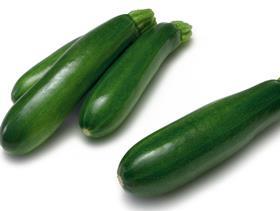
The mild winter has prompted a drop in cold-weather vegetable sales while the ongoing decline in retail sales have led some growers to reduce acreage of many lines.
Vegetable volume sales have fallen by 3.2 per cent, while the value of the category is up 4.2 per cent, primarily driven by price inflation, according to Kantar data for the 52 weeks to 30 March 2014.
“The biggest hurdle we’ve had this winter is declining supermarket sales. You can’t turn on the TV without hearing retail sales are down,” says Greville Richards, managing director of Southern England Farms (SEF).
SEF solely supplies multiple retailers, and Richards stresses the impact that pressure in this sector has had on the business: “At some point this winter we’ve had a surplus crop which we haven’t been able to move, and it has been destroyed in the field. Compared to last winter this year we have seen decreased sales. It’s the massive issue of retailer sales.”
Richards says SEF, which has an average turnover of £14 million a year, has had to drop acreage in every line after re-evaluating sales and programme expectations for summer. Courgettes are the only exception, with double acreage planted for next season and “buoyant” sales. Richards puts this down to it being well suited to Cornish growing conditions, and adds: “It’s nice to see that there are lines in the business that can grow. There is no growth in any brassica lines –potato and roots are having a terrible time. Some have said that roots this winter have seen sales drop by at least 20 per cent.”
After a mild and wet winter, Richards says vegetables associated with cold weather, such as cauliflowers and spring greens, have seen sales drop, whereas he assumes that salad producers have benefited. Showing versatility to market trends, SEF is about to harvest its first crop of asparagus, and despite heavy rain in Cornwall hampering progress, Richards believes it will provide a welcome new source of income.
Procurement manager at prepared company Freshtime, John Stokes, agrees that the mild weather has confused the consumer, who would normally continue buying warming winter vegetables for longer. “There has been no real casserole weather for months,” he says. “On the back of that customers have not really got into any routine; do they buy salads or vegetables?”
Stokes says the last few months have been “quite tricky”, and the good weather for this time of year has meant UK-grown produce has been creeping ahead of schedule while there is still strong overseas availability. “The good weather has allowed crops to race forward, so managing planned supply and demand is the challenge at present,” he adds.
Addressing falling vegetable consumption and sales, Stokes believes most people want to eat more vegetables but turning that into sales is the challenge. “Increases in vegetable costs have outstripped wage increases since 2006, which has resulted in a drop in sales. It is my opinion that people have a vegetable budget and they spend that what gives value for money,” he says.
“People are definitely consuming less, probably because of the value of the pound in their pocket. More than that, I feel that the work the Government has done on reducing food waste is bearing fruit. Food waste bins allow people to actually look what they have bought and more importantly what they have thrown away. Why buy a BOGOF cauliflower and only use one?”
Evidence that having an independent marketing budget boosts consumption and sales comes from the Tenderstem success story. Michelle Toft, marketing manager for licensor Coregeo, says a multi-faceted marketing campaign has helped drive a 20 per cent increase in sales for the first quarter of 2014. Coregeo managing director, Andy Macdonald, backs this up: “Research has shown that Tenderstem consumption is increasing year on year, much of which is due to the marketing campaign which other vegetables cannot afford.”



